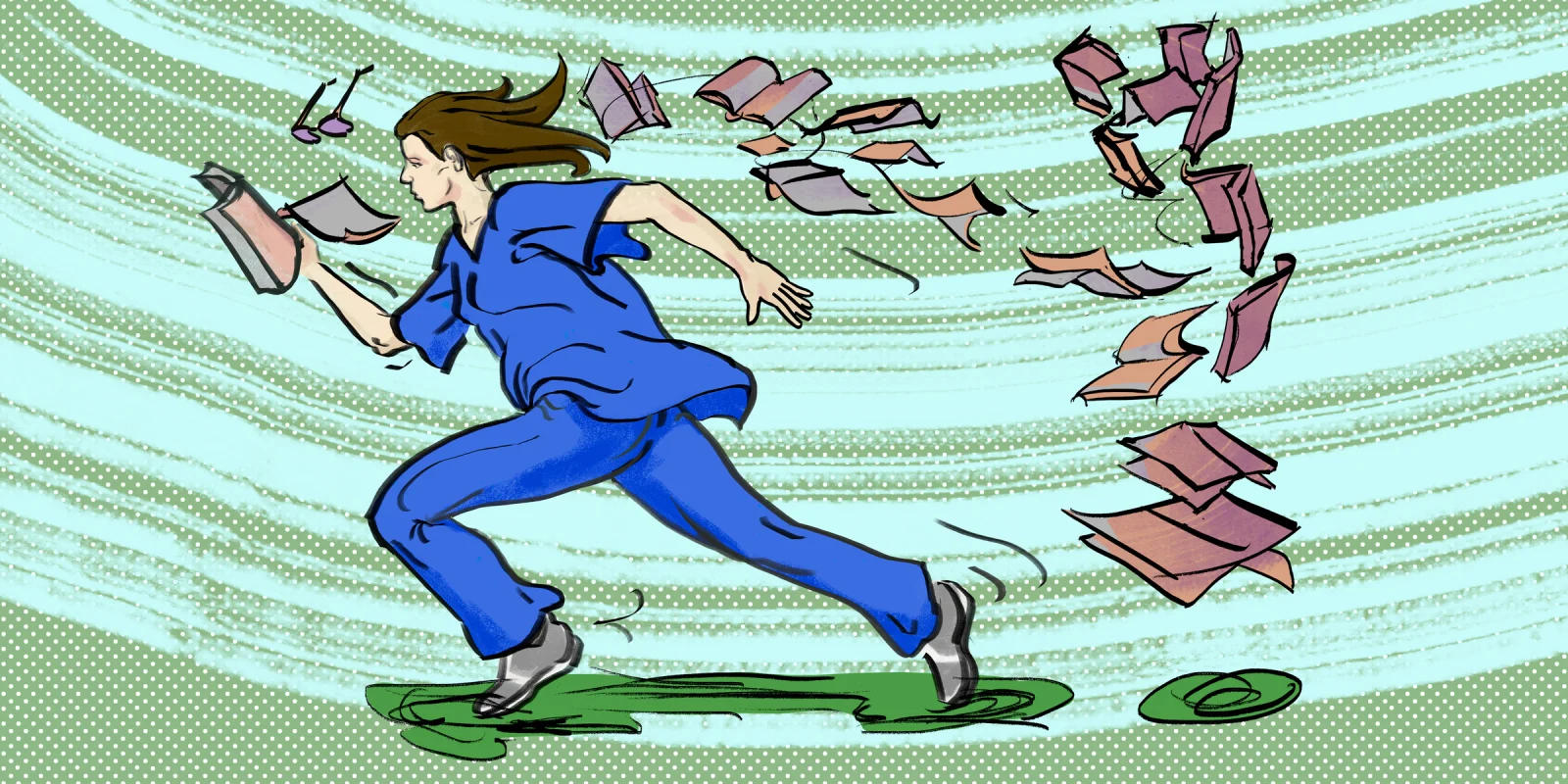Imagine this: you’ve just completed a grueling workout and pushed your body to the limit. Your skin feels like sandpaper from the accumulated sweat crystals and your mouth dryer than the Serengeti. Your muscles are spent, your mind is exhausted, and your stomach is growling. Now focus on those feelings and picture running an additional 10–20 miles. That is the best way to describe the experience of running an ultramarathon.
An ultramarathon is defined as any race exceeding the distance of a traditional marathon (26.2 miles or 42 km). There is a great paradox embedded within ultramarathons. Even though they occur in places natural beauty (e.g., Zion, Antelope Canyon, Bryce Canyon), ultramarathons take racers to dark places by challenging the human body’s physical and mental capacity. Similarly, this paradox is often felt during residency training. Residents participate in the coveted practice of medicine and often do so at the cost of long duty-hours, which potentiates stress on their minds and bodies. The commitment and resilience rooted in ultramarathons mirror the foundational qualities needed for residency.
The training required to run an ultramarathon may seem like a daunting task. During the journey, you will experience muscle cramps, blisters, fatigue, and dehydration. If you can keep the goal of completing the race in mind, these temporary discomforts can diminish. This brings me to my first parallel between ultramarathons and residency: Get comfortable with being uncomfortable. Do you remember the first day of residency with that general feeling of unease you experienced? Putting orders in for the first time, assuming higher levels of responsibility, cross-covering your first night shift — the combination of these circumstances is the nidus for an uncomfortable foundation. You just completed four years of medical school, and now it feels like you are back at square one. Not being an immediate expert in your field is uncomfortable; however, continuing to read and learn about your patients, day in and day out, will transform that temporary discomfort into second nature.
If you have ever run a 5K, half-marathon, or a full marathon, you might have heard a little voice in your head telling you to stop. My brain says, Hey Alex, you’ve done enough exercise today, your feet hurt, you’re too hungry, that was enough. I have found the best way to fight that voice is to keep running. And the more I run, the quieter it becomes.
Parallel two between ultramarathons and residency evolves around taking control of the narrative in your head. I experienced this altered narrative when I was rotating in the ICU for the first time. At this early point in my medical training, I felt ill-equipped to handle the unknowns experienced daily in the ICU. The narrative in my head initially said, Alex, you’re not good enough for this rotation; you don’t know enough at this point in your training. I get it. It’s uncomfortable to have to make medical decisions without knowing that specific medical condition inside-and-out. But your patients need you, and a negative narrative will impact your ability to care for them. I learned to rely on the resilience built through running and focus on the learning experiences to benefit my current and future patients.
During my training, I aimed to run five miles a day with a steady pace between 7:30–8 minutes/mile. I recently ran my third ultramarathon traveling 40 miles, where my pace was upwards of 16 minutes for multiple miles. After seeing the numbers, I was close to stopping. Why? My pride was saying that was too slow and was getting in the way of completing the run. Enter parallel three, which taught me to put my pride aside and keep the big picture in mind. In the hospital, you will encounter the experience of running your first “code blue.” The hectic environment may cause you to freeze, resulting in another provider taking over, which can cause you to feel incompetent. These encounters provide you with experiences that you can learn from, no matter your pace; do not let your pride hold you back.
Onto parallel four: build a strong and positive community to allow your time in the hospital to be more fruitful. You might have thought otherwise, but running an ultramarathon is not just a solitary sport. Yes, an individual is responsible for moving their body. However, a supportive team makes it possible. In formal ultramarathons, rest stations, positioned every 10 miles, provide snacks, medical attention, and fluids to athletes. When running such long distances, a team is integral to pushing through the tough times. The same goes for residency. You may be a single physician, but the team makes it possible to provide the best care to patients and the best training for yourself.
Ultramarathons are tough; residency is tough. Both are possible by being comfortable with being uncomfortable, controlling the narrative in your head, putting your pride aside, and surrounding yourself with a supportive team to benefit your current and future patients.
What elements of your hobbies helped prepare you for residency? Help your colleagues with your advice below!
Dr. Alexander Shinn is a first-year internal medicine resident at the University of Missouri-Columbia and is currently interested in pursuing a cardiology fellowship. His purpose for helping and inspiring others expanded when he fell in love with running. As a life-long athlete, he is now unearthing meaning and lessons that relate running and residency to life.
Illustration by Jennifer Bogartz







